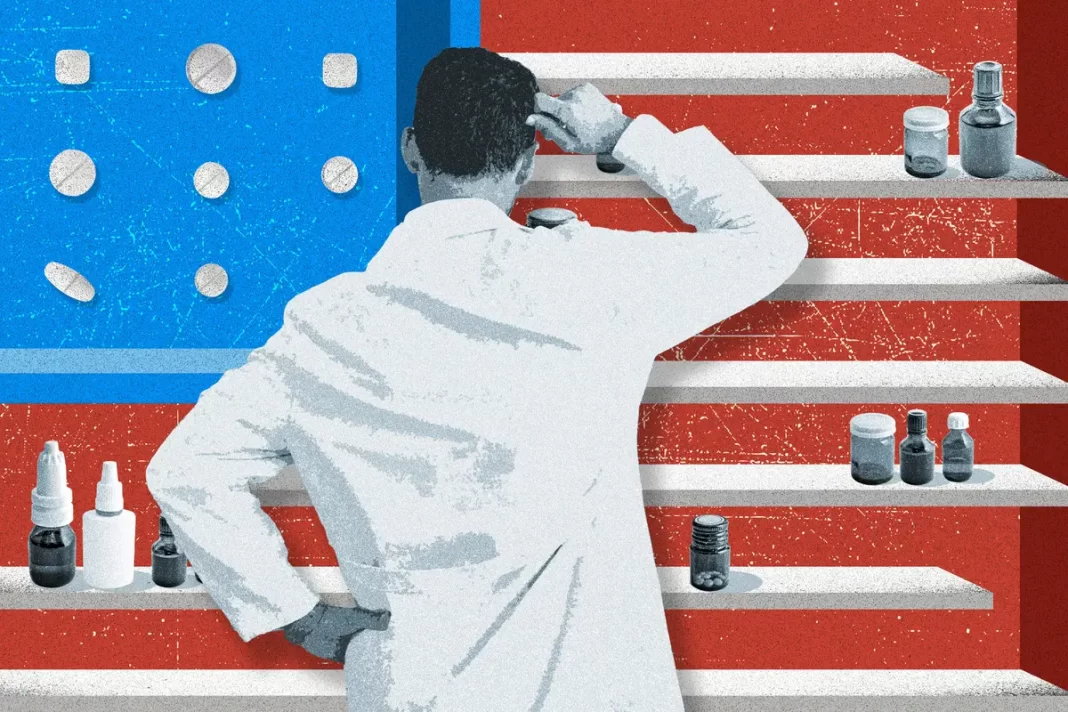Health care providers and patients struggle to find critical medications as U.S. officials grapple with solutions.
The ongoing scarcity of critical medications has trapped Americans between a rock and a hard place.
Active national drug shortages hit a 10-year high this year, leaving many health care providers, pharmacies, and hospitals without enough life-saving and supportive medications, according to data collected by the University of Utah Drug Information Service.
A survey by the same university in July found that 99 percent of the 1,123 pharmacists who responded—many of whom work in hospitals—reported shortages. One-third of the pharmacists listed the shortages as “critically impactful,” which is defined as being forced to ration medication or delay or even cancel medical treatments.
The U.S. Food and Drug Administration lists 124 medications in short supply as of Dec. 21; the list topped out at 309 earlier this year.
The shortage applies to multiple categories, including antibiotics—both amoxicillin and azithromycin are on the list—and staple analgesics such as ketamine, as well as nitroglycerin injections, a vital tool in helping to control congestive heart failure in heart attack patients.
Securing medication is also a challenge for those managing chronic illnesses.
Jennifer, a Waterford, Michigan, resident who asked that her last name not be disclosed, told The Epoch Times that she was only recently able to start taking her Type 2 diabetes medication again after being stranded without it for the second time since July 2022.
She started taking Ozempic again on Dec. 10, after being unable to fill her prescription for weeks.
Ozempic is one of the many drugs affected by current shortages; that’s reportedly due, in part, to Ozempic’s off-label use as a weight-loss supplement. The manufacturer, Novo Nordisk, lists the official reason for the shortage as “increased demand.”
“The pharmacist told me it’s on back order and, ‘You need to call around to see if other stores or pharmacies have it in stock.’ And I’m like, no, that’s your job,” Jennifer said.
She was noticeably frustrated—there are physical consequences of having gaps in her medication. In addition to managing her A1C levels, the drug comes with unpleasant side effects for some patients, which take time to wear off.







